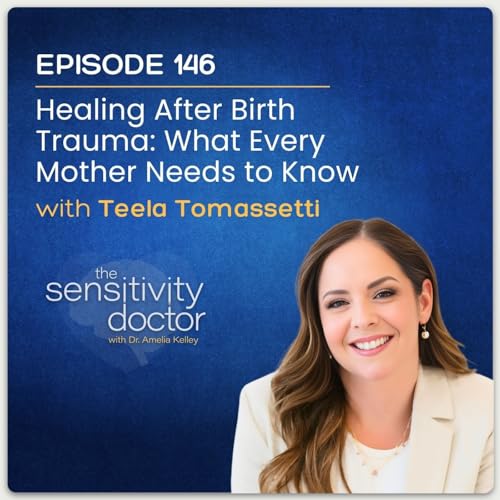
The Sensitivity Doctor
Failed to add items
Add to basket failed.
Add to Wish List failed.
Remove from Wish List failed.
Follow podcast failed
Unfollow podcast failed
-
Narrated by:
About this listen
Ever been told you’re too sensitive, too emotional, or just too much? Good. You’re exactly who this podcast is for.
Hosted by Dr. Amelia Kelley—TEDx speaker, author, and trauma-informed therapist—The Sensitivity Doctor explores what it really means to live, love, and lead with sensitivity in a world that often misunderstands it.
Each week, Dr. Kelley dives into the science and soul of being highly sensitive, from trauma healing and ADHD to boundaries, relationships, and nervous system balance. Through honest conversations and practical insights, you’ll learn how to transform what once felt like “too much” into your greatest source of strength.
This isn’t just a podcast—it’s a movement toward living authentically, embracing your emotions, and using your sensitivity as your superpower.
2024 Dr. Amelia Kelley-
 55 mins
55 minsFailed to add items
Sorry, we are unable to add the item because your shopping cart is already at capacity.Add to basket failed.
Please try again laterAdd to Wish List failed.
Please try again laterRemove from Wish List failed.
Please try again laterFollow podcast failed
Unfollow podcast failed
-
 48 mins
48 minsFailed to add items
Sorry, we are unable to add the item because your shopping cart is already at capacity.Add to basket failed.
Please try again laterAdd to Wish List failed.
Please try again laterRemove from Wish List failed.
Please try again laterFollow podcast failed
Unfollow podcast failed
-
 50 mins
50 minsFailed to add items
Sorry, we are unable to add the item because your shopping cart is already at capacity.Add to basket failed.
Please try again laterAdd to Wish List failed.
Please try again laterRemove from Wish List failed.
Please try again laterFollow podcast failed
Unfollow podcast failed


